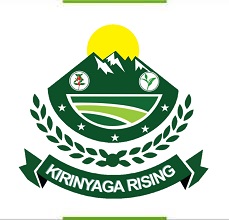Kirinyaga County constructs chicken houses for mass egg production
Kirinyaga County Government has constructed chicken houses for farmers that are undertaking a mass egg production in the county. The poultry project will produce one million eggs per month that will translate to around Ksh. 10 million for the farmers.
The chicken shelters will accommodate 40,000 layers to be reared by 32 community interest groups composed of 1,110 households. Each of the groups will rear 1,250 layers. A family is therefore expected to make around Ksh. 8,000 per month from eggs and will still have time to engage in other economic activities since chicken rearing does not take a lot of time. The project will fill the deficit on local egg production that makes Kenya import eggs from neighboring country Uganda.
The poultry project is one of the agricultural value chains that the county is implementing under ‘Wezesha Kirinyaga’ economic stimulus program. Speaking while inspecting some of the chicken houses, Governor Anne Waiguru, said that each of the groups will get their chicks in March while the first batch of eggs is expected six months thereafter. The county will give free chicken feeds to farmers for the first six months.
Subsequently the farmers will be buying quality feeds at a subsidized price from the factory to reduce cost of production and become competitive in the egg market. Governor Waiguru said that that the farmers will sell their eggs through Kirinyaga Investment Development Authority (KIDA), the county organ responsible for promoting and marketing of the county’s investments. KIDA has sourced for markets in public and private institutions and businesses.
The governor said that the poultry project is an end to end program that will ensure that farmers get a guaranteed income since the county will market their products. “The poultry project is an alternative income generating activity aimed at improving the livelihoods of Kirinyaga people mainly through women and youth,” said that governor, adding that her government is supporting farmers to diversify their agricultural activities to reduce over dependence on conventional cash crops such as coffee and tea. “The poultry project will enable families take care of the needs of their families. They will also afford to pay school fees for their children from the earnings they get from sale of eggs”, she pointed out.
To ensure that the project is successful and that the layers realize optimum production, the county government has attached a veterinary and a livestock extension officer to each of the group projects. The officers will give the necessary technical advice such as how to feed the birds and administer vaccines.The poultry projects are spread throughout all the 20 wards of the county with wards getting one to two projects. Extension officers involved in the program have already been trained while training of the farmers is also scheduled to take place before the chicks are delivered.
The project is a collaboration of the county government and The World Bank through the National Agricultural Rural Inclusive Growth Project (NARIGP).



